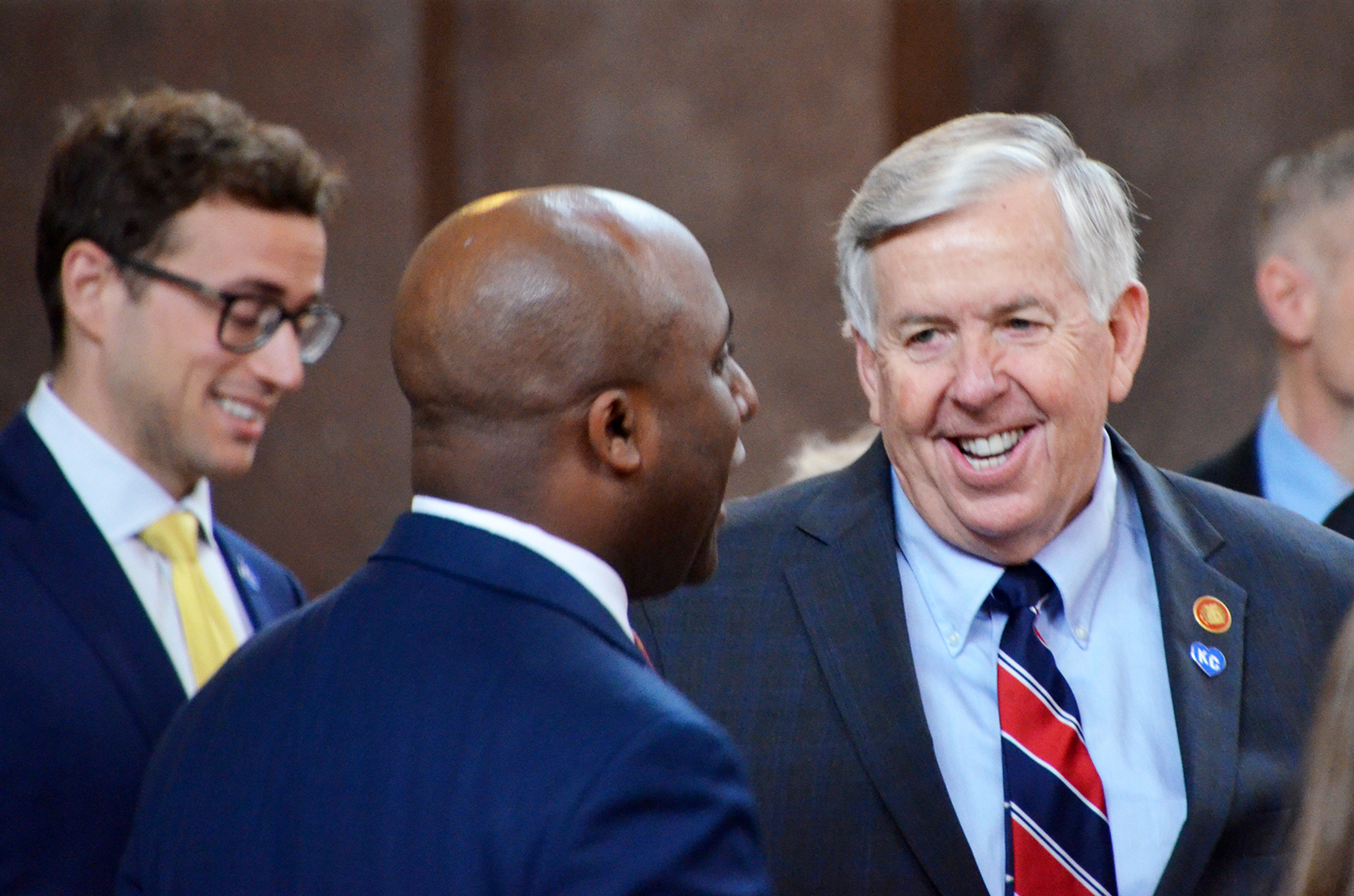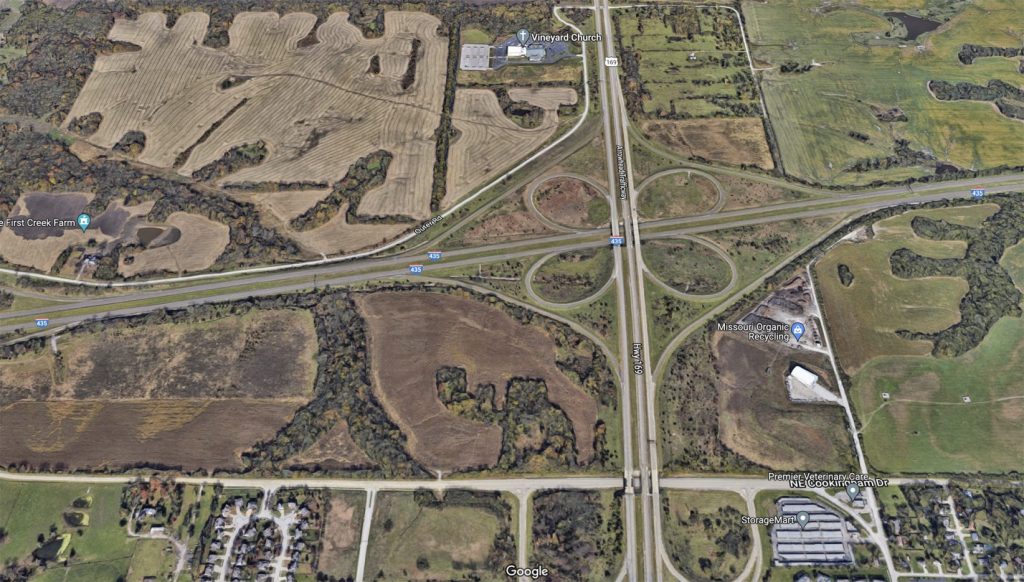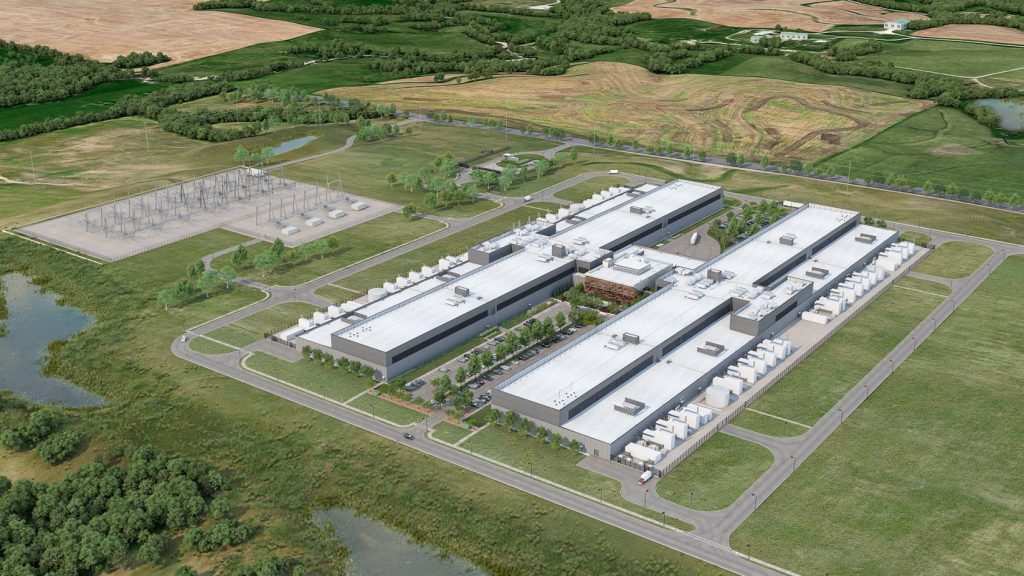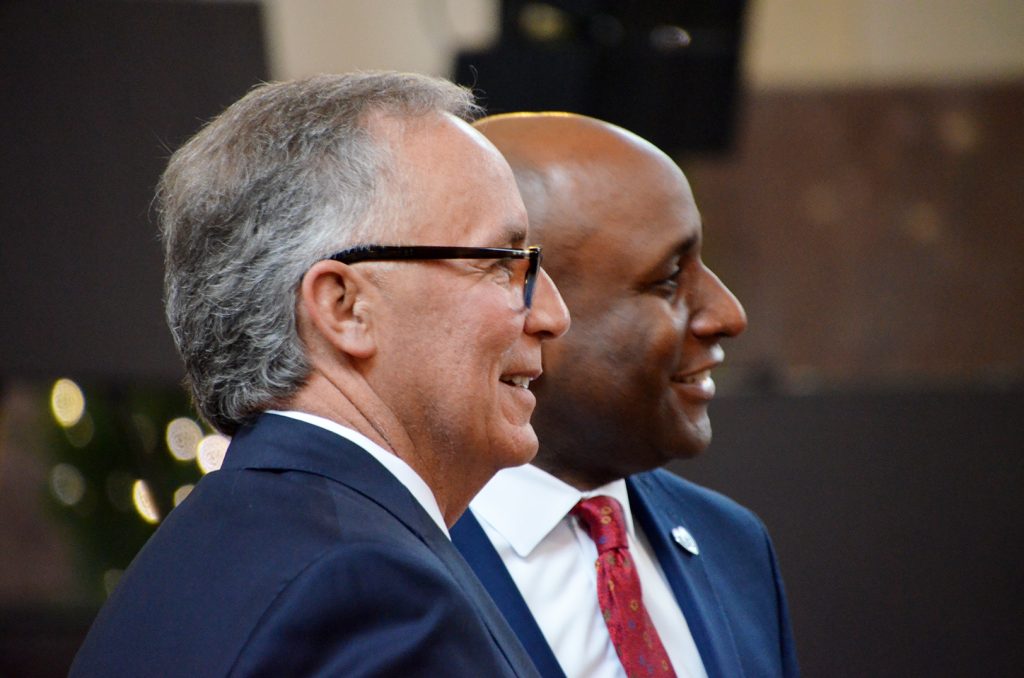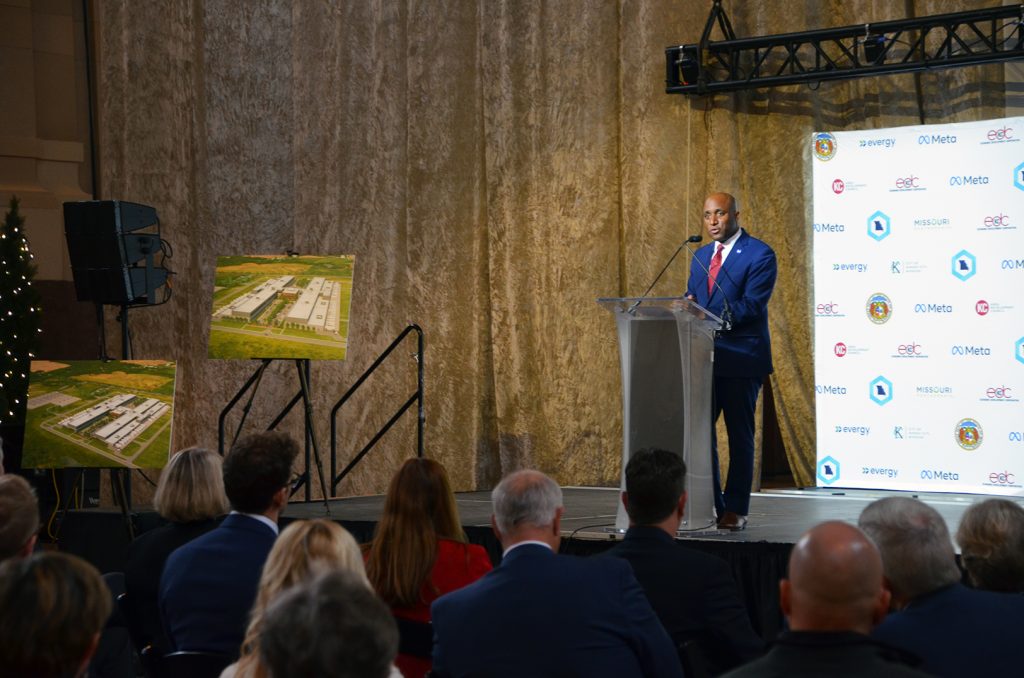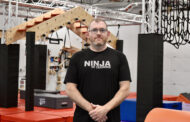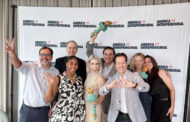There’s more to Meta’s $800 million upload into Kansas City’s Northland than face value, company officials said Thursday, outlining plans for community impact that extends well beyond anticipated tech jobs.
“We have programs that help to equip people, schools, and organizations with the resources to build skills and increase the use of technology,” Darcy Nothnagle, director of community and economic development at Meta, told a crowd gathered Thursday morning at Union Station.
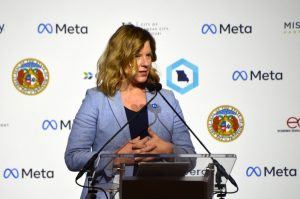
Darcy Nothnagle, Meta, speaks at Union Station during the announcement of Meta’s new $800 million data center in Kansas City
Her remarks came as the global social media and tech giant, formerly known as Facebook, announced a massive data center set for the Great Plains Technology Park near Kansas City International Airport. Once the 1 million-square-foot facility is online in 2024, Meta plans to launch its Community Actions Grants Program in Kansas City — putting the power of technology to work to solve community needs, Nothnagle said.
Click here for full details on the Meta project, which is expected to be supplied by 100 percent renewable energy once completed.
Meta can receive up to nearly $1.8 billion in sales and use tax exemptions over the next 15 years through the Data Storage Center Tax Exemption Program, according to the Missouri Department of Economic Development. The program is performance based, so the actual incentive amount will depend on the company’s investment over the coming years.
“Our mission is to give people the power to build community and bring the world closer together,” Nothnagle said. “And I think that starts right here at home — and right here in Kansas City.”
The metaverse is the next evolution of social connection. Meta’s vision is to help bring the metaverse to life, so it changed its name from Facebook to Meta to reflect its commitment to this future.
News of Meta’s plan to construct the massive data center was met with immediate optimism and skepticism — both dosed heavily via community reactions to Thursday’s announcement across social media.
A top concern for Kansas Citians: the project’s impact on the local workforce, with the sprawling company expected to create just 100 jobs in a market where startups are creating hundreds of new tech positions, but often struggling to fill them. Torch.AI, a national security-focused artificial intelligence firm, for example, has in recent months promised to generate nearly 500 opportunities to employ the city’s tech talent.
Full-time positions at the Meta site — from technical operations, electricians, air conditioning and heating specialists, logistics staff, security, culinary, and other job types — are expected to pay, on average, more than $81,000 in annual salary, the Missouri Department of Economic Development told Startland News.
‘They cluster; they follow each other’
The project’s significance won’t just be felt by individual workers or the tech sector alone, Nothnagle and area civic leaders said.
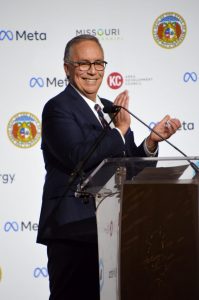
Tim Cowden, Kansas City Area Development Council, at the announcement of Meta’s new $800 million data center in Kansas City
Meta anticipates the creation of more than 1,300 construction and trades jobs — an incredible opportunity for skills-based talent as construction on the new terminal at Kansas City International Airport winds down in March 2023, added Tim Cowden, president of the Kansas City Area Development Council (KCADC).
“It’s almost [like] thinking about a continual construction of KCI,” Cowden told Startland News, outlining what the Meta project means for the Kansas City region and what it took to realize Thursday’s announcement — a three-plus year journey, led largely by Jill McCarthy, senior vice president of corporate attraction for the KCADC.
“Bringing a brand with the heft of Meta into our tech community elevates everybody. The rising tide benefits all ships and this is tremendous validation of our tech community and of Kansas City as a place to do business,” he continued.
Brought to reality by additional partners like Evergy, the Missouri Partnership, the Missouri Department of Economic Development, and The Economic Development Corporation of Kansas City, Missouri (EDCKC), Meta’s choice to establish a presence in the heartland region could inspire other tech companies to follow suit — much in the same way the launch of Google Fiber in Kansas City promoted a flurry of startup activity in 2012, Cowden said.
“When [Meta] selects your region, I think it opens eyes,” he said. “[People] say, ‘What’s going on there?’ It will just be — initially — Meta coming to Kansas City. … But these tech companies, they cluster. They follow each other. And it will be very impactful.”
Cowden compared the energy of Meta’s arrival in Kansas City to the kind felt in Columbus, Ohio, where Google, Amazon, and Apple planted flags — ultimately luring Intel to the Buckeye State. The Silicon Valley tech behemoth announced in January an initial investment of $20 billion in the region of Licking County, where it is expected to construct two semiconductor facilities.
The Intel project is expected to create 3,000 jobs within the company and more than 7,000 construction jobs. The company also pledged $100 million in support of education institutions where it plans to create partnerships that fuel a robust pipeline of talent and research efforts.
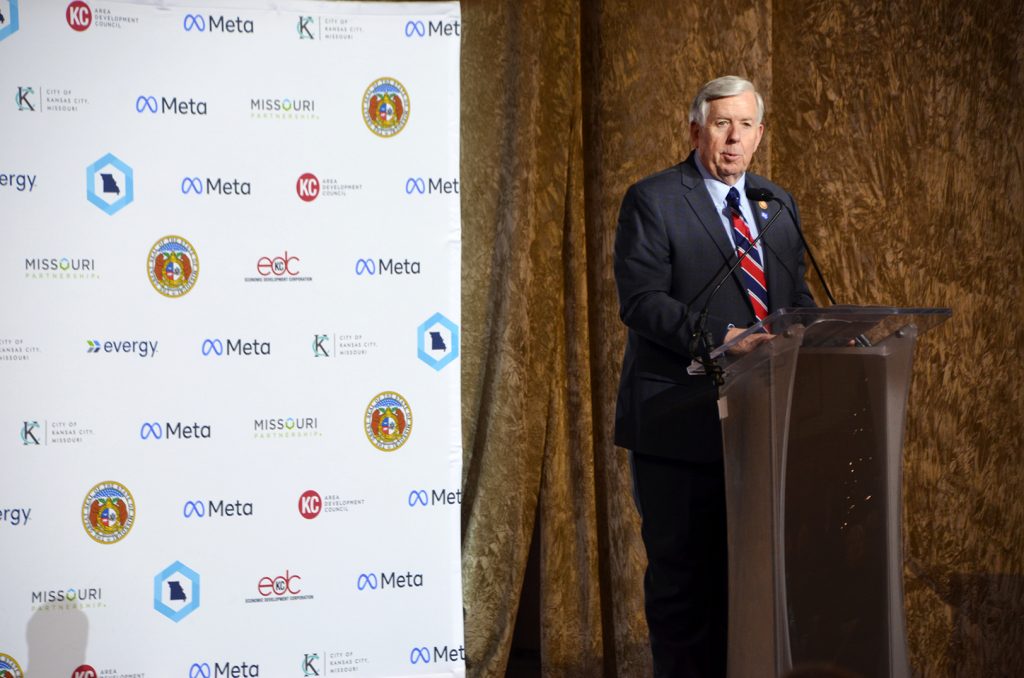
Gov. Mike Parson, R-Missouri, speaks at Union Station during the announcement of Meta’s new $800 million data center in Kansas City
‘This is the big one’
High-ranking elected Missouri and Kansas City officials also spoke in support of the Meta project Thursday, echoing Cowden’s sentiments as they pondered what having the parent company of Facebook and Instagram — and a world leader in the emerging metaverse — firmly committed to operation in the region might mean for its future.
“Missouri is No. 1 in the United States for on-the-job training. We are No. 3 in the United States for apprenticeship programs. We are fifth in the United States for low cost of doing business. We are seventh in the United States for people relocating to our state [and to] Kansas City. And we are seventh in the United States for product manufacturing growth,” Gov. Mike Parson said.
The state of Missouri is recognized as 10th in the United States for its contributions to the automobile and aerospace industries, new business expansions, and site selections, the governor continued — noting the future of each of the sectors will be driven by technology.
“This is why we’re on the right track in Missouri. This is why we’re here today to celebrate this investment in our state.”
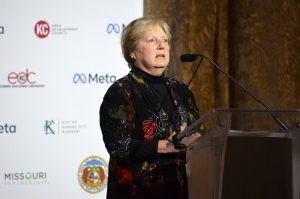
Teresa Loar, KCMO city councilwoman, speaks during the announcement of Meta’s new $800 million data center in Kansas City
For Teresa Loar, city councilwoman from the second district at-large, Meta’s presence in a developing area of the metro north of the Missouri River is a reminder of how far her district has come.
“When I first came to Kansas City in 1968 … we did have running water in the Northland — but not much more,” joked Loar, who is on her fourth term as councilwoman.
“This is it. This is the big one. It’s like having a baby — and look what we did,” she said of the power of civic minds working together to secure what they believe to be Kansas City’s future.
While celebration over the milestone to secure Meta’s presence in Kansas City is warranted, Mayor Quinton Lucas said, the announcement marks the beginning of an even bigger task.
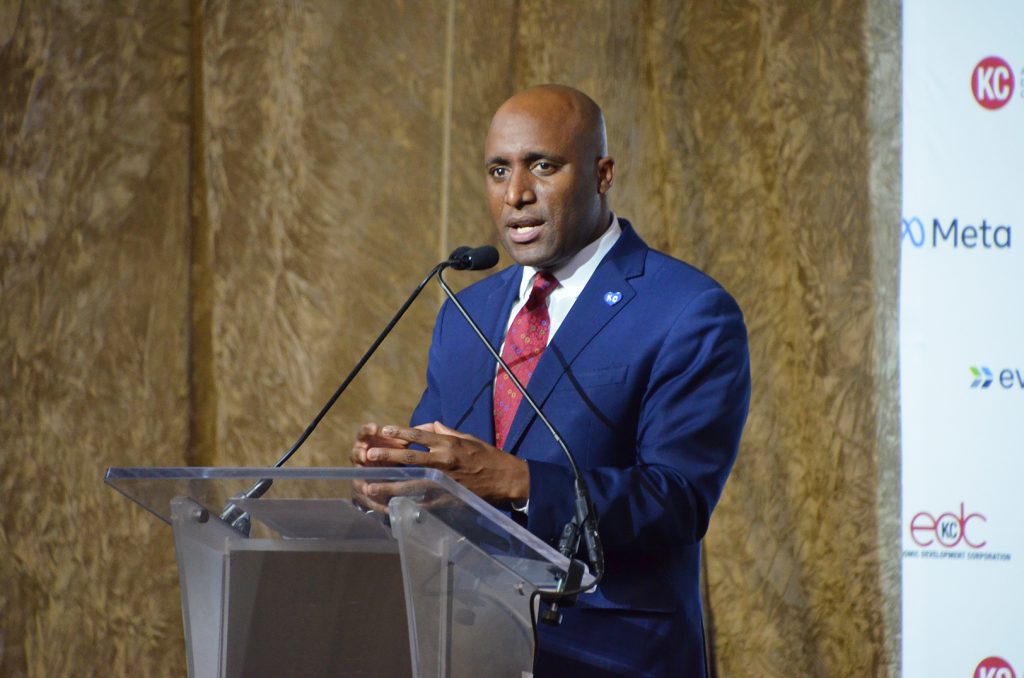
KCMO Mayor Quinton Lucas speaks at Union Station during the announcement of Meta’s new $800 million data center in Kansas City
“To our friends at Meta and anybody else in the business community watching: our help doesn’t stop now. We were happy to vote in all the approvals. … But the state of Missouri, the City of Kansas City — we’re still here to work with you along the way,” he said, offering an optimistic take on the steps necessary to ensure the presence of Meta is fostered and retained by the region.
“As there may be hiccups, as there may be greater opportunities, know that you not only have a business partner, but you have friends who care about your company, its investment, and all that it does to make the world better.”
Click here to explore the Golden Plains Technology Park, future home of Meta, and/or watch the video below.



